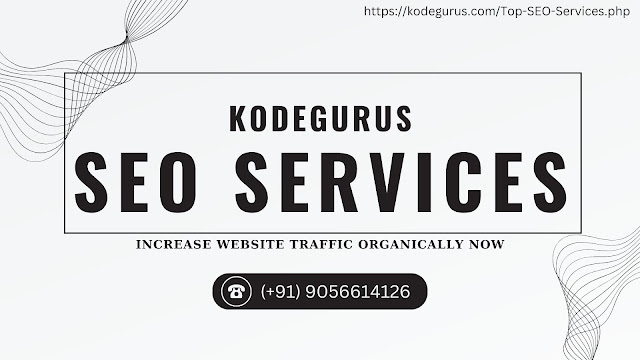Mastering SEO Marketing: Everything You Need to Know
Search Engine Optimization (SEO) is a vital aspect of digital marketing that focuses on increasing a website's visibility and organic search engine rankings. By employing various strategies and techniques, SEO aims to attract more visitors to a website, thereby enhancing its traffic and potential for conversions. Understanding and effectively implementing SEO strategies can significantly impact a website's success. Here's an in-depth look at what SEO is and how you can gain website traffic with SEO strategies.
Understanding SEO
SEO encompasses a range of practices designed to improve a website’s appearance and positioning in organic search results. Search engines like Google use algorithms to determine the relevance and ranking of websites based on various factors, including keyword usage, website structure, and the quality of content. The primary goal of SEO is to align a website's content and structure with these algorithms to achieve higher rankings, which leads to increased visibility and traffic.
Key Components of SEO
Keyword Research and Optimization: Identifying and targeting the right keywords is the foundation of SEO. Keywords are the terms and phrases that users enter into search engines when looking for information. Effective keyword research involves finding keywords that have a high search volume and low competition. Once identified, these keywords should be strategically placed in the website’s content, meta tags, and headings to improve relevance and ranking.
On-Page SEO: This refers to optimizing individual web pages to rank higher and earn more relevant traffic. On-page SEO includes optimizing meta descriptions, title tags, headers, and URL structures. It also involves ensuring that the content is high-quality, relevant, and provides value to the audience. Internal linking, which connects related pages within the website, is another crucial aspect of on-page SEO.
Technical SEO: This involves optimizing the technical aspects of a website to ensure search engines can crawl and index it efficiently. Technical SEO includes improving site speed, ensuring mobile-friendliness, creating an XML sitemap, and using structured data markup. A well-optimized website enhances user experience, which is a critical factor in search engine rankings.
Content Creation and Marketing: High-quality, engaging content is at the heart of SEO. Content should be informative, relevant, and tailored to the target audience. Regularly updating the website with fresh content, such as blog posts, articles, and infographics, can attract more visitors and encourage them to stay longer. Content marketing involves promoting this content through various channels, including social media and email marketing, to reach a broader audience.
Backlink Building: Backlinks, or inbound links, are links from other websites to your own. They are a crucial factor in determining a website’s authority and ranking. Building high-quality backlinks from reputable websites can significantly improve a site’s SEO. This can be achieved through guest blogging, influencer outreach, and creating shareable content that naturally attracts links.
How SEO Strategies Gain Website Traffic
Implementing effective SEO strategies can lead to substantial increases in website traffic. Here’s how:
Increased Visibility and Rankings: By optimizing your website for search engines, you improve its chances of appearing in the top positions of search results. Higher rankings lead to increased visibility, which drives more organic traffic to your site.
Targeted Traffic: SEO helps attract users who are specifically looking for the products or services you offer. By targeting relevant keywords, you can draw in visitors who are more likely to convert into customers.
Improved User Experience: SEO involves optimizing various aspects of your website, including speed, mobile-friendliness, and content quality. A better user experience leads to higher engagement, lower bounce rates, and increased likelihood of visitors returning to your site.
Brand Authority and Trust: High-ranking websites are often perceived as more credible and trustworthy. By appearing at the top of search results, you can build your brand’s authority and trust with your audience.
Long-Term Results: Unlike paid advertising, the benefits of SEO are long-lasting. Once your website achieves high rankings, it can maintain them with ongoing optimization and content updates, continually driving traffic to your site.





Comments
Post a Comment